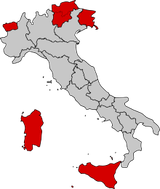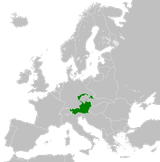>>213826745
This also pretty much explains why eastern Europe tends to be more centralized comparing to western Europe.
In western Europe even small towns often have some advanced high-income companies that have been developing uninterruptedly for the last 150 years and the whole city's economy is organized around these facilities, so when you're born in such a town you don't really need to move to a bigger city. The company is often family-owned and in this sense there is an emotional bond between the company and the city, it's part of its identity, so even if economically it would make more sense to move the company's HQ to another place, there will be strong objection from everyone, including its owners.
In eastern Europe, where there are hardly any domestic companies and the whole economy is dominated by local branches of western firms, said companies tend to flock to the capital city/biggest cities because they don't have any emotional connection to any small town in this country and even big cities offer so cheap land/office space and workforce from their western perspective so it simply doesn't make sense to choose any other place. Not to mention, in a bigger city they will always find everyone to work in their facility, from the lowest-qualified workers to specialists, meanwhile in a small town they would only have to start organizing the whole society to adjust it to the company's needs which would take decades, and they know well that in two decades they might not even still be present in this country because they will move out to India or something.
That's why on these GDP/purchasing parity maps there is a clear difference in distribution of wealth in western Europe vs eastern Europe.
 8/15/2025, 6:04:08 AM
No.213826388
[Report]
>>213826395
>>213826717
>>213826755
>>213826822
>>213826940
>>213828799
>>213828855
>>213829021
>>213829096
>>213829100
>>213830037
>>213830059
>>213830727
>>213831630
>>213833486
>>213834892
>>213838655
>>213839302
8/15/2025, 6:04:08 AM
No.213826388
[Report]
>>213826395
>>213826717
>>213826755
>>213826822
>>213826940
>>213828799
>>213828855
>>213829021
>>213829096
>>213829100
>>213830037
>>213830059
>>213830727
>>213831630
>>213833486
>>213834892
>>213838655
>>213839302







